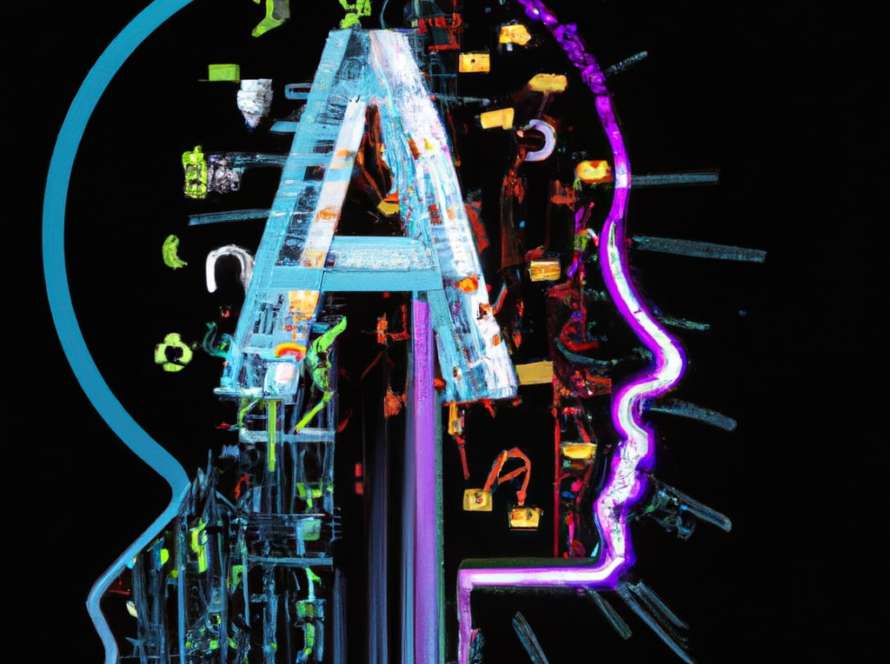Contact centre technology is constantly evolving, but the core of the contact centre experience has remained the same for decades. At their heart, contact centres rely on skilled human agents to assist customers to the best of their ability. However, in the near future, this fundamental aspect of the contact centre could be set to change. Gartner predicts that conversational AI technology has the potential to cut contact centre costs by up to $80 billion.
If these cost savings are indeed realised, this would represent a seismic shift in how contact centres operate and would signal the largest shakeup of the customer service industry in decades. In the near future, we could see contact centres shift away from their current labour intensive model and replace it with a new vision of the automated contact centre that places a virtual workforce at its centre.
It’s no secret that contact centres have been struggling for years with a revolving door of agent labour. Staff wellbeing is low, 72% of workers say they are facing burnout, and attrition is high: the average staff turnover rate in the contact centre industry is 20%, with 1 in 6 operators even experiencing up to 30%.
It’s clear that something needs to change. Customer’s are struggling to get the support they need, which in turn negatively affects customer loyalty and retention, and lives are being lost to the repetitive drudgery of call centre work. During the global pandemic that began in 2020, customer service calls increased dramatically, and the numbers have not significantly fallen since. As the world rapidly heads into more and more global uncertainty, the current pressures on contact centres are set to become the new normal.
The need for automation has never been clearer, and the contact centre industry stands at a clear crossroads. They can continue to invest in subpar customer service tech, including live-chat, knowledge bases, and FAQs that simply frustrate and divert customer calls while avoiding core problems. Or, contact centre leaders can be bold enough to meet these challenges by investing in the next generation of conversational AI technology.
24/7 support
The world is changing, and over 9 in 10 UK employees no longer work traditional 9 to 5 hours. As a result, the demands and expectations of consumers are changing: they want to be able to access customer support however and whenever they need it, even if it falls outside of contact centre opening hours. Offering 24/7 customer support with human agents is hugely expensive. Either staff have to work long, gruelling shifts, or businesses need to pay increased costs for overtime and unsocial hours.
But digital conversational agents are tireless and never need to take time off. With the next generation of conversation technology, virtual agents can be ready to assist customers with a range of queries at any time of day. Chatbots and current generation technology frequently struggle to resolve complex customer service issues. In contrast, the next generation assistants utilise cutting edge advances in conversational technology to resolve complex queries phrased in natural language. Conversational AI tech can be integrated into your digital ecosystem in an end-to-end fashion, meaning that next gen virtual assistants can instantaneously help with any customer requests.
All of this works to resolve customer requests faster without the need for human intervention. Even when your contact centres are closed, virtual agents are online and ready to assist customers. This provides a significant competitive advantage as you can offer a 24/7 service that doesn’t require expensive human resources.
Enhanced voice support
Many conversational AI suppliers will boast that their tech is omnichannel and can be deployed over any customer service channel. This sounds impressive on paper, but in reality, one channel is significant: the telephone. On average, the vast majority of contact centre interactions still take place over the phone. Voice calls, (inbound and outbound) make up 68.5% of all contact centre interactions. Contact centre staff still spend the vast majority of their time answering phone calls, and this makes up by far the largest percentage of contact centre costs.
Current chatbot and conversational AI solutions work best over text and have limited support for voice interactions. Developed using limited low- and no-code tools, these services typically have poor support for voice interactions and speech recognition. The next generation of conversational technology is not bound by these limitations. Offered only by specialist, expert suppliers on a bespoke basis, this new breed of technology places voice support at its centre and can converse with customers seamlessly over the telephone while effortlessly accommodating background noise, hesitations, and interruptions to emulate natural, human-like conversation.
Better Analytics
Next generation conversational AI tech excels at holding conversations over the phone. Not only do virtual assistants have access to all of your company’s information, they can also rapidly and accurately communicate this information to your human workforce.
Data and analytics from customer conversations can be reported instantly and accurately, giving you a more accurate picture of your customer base and their needs than ever before. And conversational agents can effortlessly and tirelessly take care of the repetitive and tedious processes of data entry and record keeping.
All of this builds to give your business a better picture of your customers, enabling you to respond proactively to customer needs and demands. By helping you boost customer retention,next generation conversational tech helps you keep ahead of competitors.
Reduced Workloads
Contact centre work can be tedious and tiring. Customer calls are often repetitive and customers can often be frustrated or difficult to deal with. 52% of contact centre workers say their workload has increased since the start of the pandemic, and many feel that they are under pressure to deliver quantity over quality.
The next generation of conversational technology can help ease the burden on overstretched contact centre staff. With the ability to typically automate up to 90% of customer service requests, virtual assistants allow your staff to focus on high value tasks and interactions that are more rewarding. This can help to improve staff morale and motivation as well as reducing staff turnover rates.
In addition, by automating the majority of customer service requests, your contact centre can improve its efficiency and deliver a better quality of service. Customers no longer need to spend their precious time waiting on hold, they simply need to dial in and they can access an immediate and sophisticated service.
Your best agents, at scale
With such a high turnover rate, it can be hard for contact centres to attract and retain the best talent. Using virtual agents, contact centres can be confident that their best agent is capable of answering every call. In effect, the next generation of conversational AI technology allows you to deploy your best agents at scale.
You can be confident that customer calls are well understood. This means you can be sure that your best agents are always available, no matter how many customer calls come in.
Defining the next generation of conversational AI
At action.ai, we’re dedicated to developing the next generation of conversational AI tech. We want to meet the challenges of the contact centre head on, and our goal is to automate the vast majority of customer service calls efficiently and at scale. The ability to automate phone calls is considered the ‘holy grail’ of customer service technology, and we aim to pioneer this technology.
The word automation often conjures up visions of soulless machines that offer quantity over quality. This could not be further from our approach. We want to deliver next generation automation while providing technology capable of engaging in high-quality, human-like conversations using natural language. We believe that quality and quantity don’t have to be antonyms, and it is these values that drive us to build truly exceptional conversational technology.



